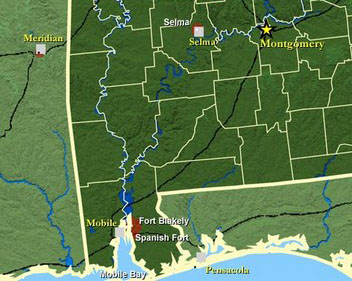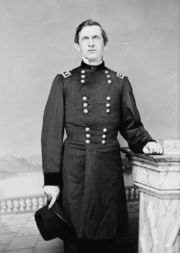A few years ago a friend gave me a copy of James Loewen’s book “Lies My Teacher Told Me: Everything Your American History Textbook Got Wrong.” It was after all a “National Bestseller.”
I thumbed through it and then tossed it in a pile of books that were later shelved without reading. Recently, I was going through my bookshelves and decided to give it a read. What I found was a great idea, but sorely out of date, and at times misleading in its own right.
This will probably be the first in a series of post concerning this book. I will be mainly discussing the 1995, first edition. Looking through the updated versions there does not appear to be a lot of difference in the sections I will be discussing.
Loewen’s book has good intentions and asks good questions. His ultimate goal is to point out problems in presentation that ultimately, in his view, provided students at one time with inaccurate, misleading, and often “boring” history textbooks.
In his sensible argument, if these textbooks had used the contradictions of such famous Americans as Jefferson, Washington, and Lincoln, along with other people and events, than teachers could have possibly infused their students with a spark of interest. By making history controversial we ultimately make it more enjoyable. I am all for pointing out the controversies and mysteries of history as a hook to engage students.
However, as the sensationalized titled hints at, Loewen’s thesis is sorely over-stating the case today. This book would have been far more appropriate had it come out in the 1980s, or had it been titled “Lies Our Teachers Told Us back in the 1950s, 60s, 70s and maybe 80s.”
I took the time recently and surveyed half a dozen modern textbooks from the late 1990s to 2007 and have found few, if any, instances of blatant historical horrification and misleading of the nature that Loewen bemoans in his book.
As a matter of fact, I have started to pick up on themes within Loewen’s writing that lead me to assume he has his own agenda and one that ranks him along with those he criticizes.
For example, his observances of some history textbook’s treatment of Lincoln, is a good place to start. Loewen makes some very good points and observations, but the textbooks he refers to are all pre-1980s and even one from 1923.
However, I perked up a little after reading the following two quotes (p.179):
“Textbooks describe Abraham Lincoln with sympathy, of course. Nonetheless they also minimize his ideas, especially on the subject of race. In like Lincoln wrestled with the race question more openly than any other president except perhaps Thomas Jefferson, and unlike Jefferson, Lincoln’s actions sometimes matched his words.”
A few sentences later, “In conversation, Lincoln, like most whites of this century, referred to blacks as ‘niggers.’ In the Lincoln-Douglas debates, he sometimes descended into explicit white supremacy…”
The first quote on the surface appears to be not so damning of Lincoln, and in a way sympathetic in its own right. But if you read it again, you’ll see Loewen making a comparison with Jefferson (who he already cut down to size in an earlier chapter). Jefferson’s actions did indeed contradict some of his own words, but not all of his actions, which is what Loewen suggests here. But sticking to Lincoln, by even bringing Lincoln’s name into play with Jefferson is interesting, if not misleading.
In the second quote, Loewen is most damning, yet cites no references to any of the debates where Lincoln reportedly “descended into explicit white supremacy” rhetoric. He also fails to cite references to Lincoln’s use of the word “nigger.”
So I went to Lincoln’s “Collected Works” online and did some simple searching. I typed in “Nigger” thinking that it would bring back as many as 100 or possibly more hits.
It brought back 21 matches. So I started looking through them.
Most were not spoken by Lincoln, but written by a narrator (or commentator) of a speech, or an editor or journalist. A couple were written by Lincoln in a letter but contained in quotation marks as if referring to someone else’s words. I found 5 uses by Lincoln during these debates Loewen mentions, but often Lincoln’s uses are quizzical, seemly humorous (though in bad taste from today’s perspective), and does nothing to even hint at blatant racism or white supremacy. (“There is no danger that the people of Kentucky will shoulder their muskets and with a young nigger stuck on every bayonet march into Illinois and force them upon us.”) Numerous returns were also duplicates of others thus making the real return less than 21 matches and more like 11-13.
Hardly the damning record of a blatant racist spewing “Nigger” in his law office with the fellas.
But lets assume Lincoln probably did regularly use the word “Nigger,” as many Whites probably did. What does that prove other than he was a man of his times? We cannot view history through a window and sit in a room of modern ethics and ideals of righteousness and place judgment if, as Loewen professes, its true understanding we are seeking.
Lincoln was a progressive and was consistent in his hatred for slavery, and helped lay the foundation for emancipation. He was always consistant, if anything, toward his true view of slavery as an evil. Did he consider blacks to be his intellectual and political equal, doubtful. Few if any would have even been capable of such a thought in the 1840s or 50s.
When his speeches are looked at in the proper perspective (time, location, and audience) you see the cunning politician in Lincoln as he maneuvers the landmines of political discourse. When he talks about not freeing a slave to save the union, his words come from someone sworn to protect the constitution as every President must do first and foremost.
I’m afraid, as I will show in further posts, that although Loewen has good intentions and brings forth certain abuses of history books past, his thesis is outdated and his work sensationalized by publishers looking to make a quick buck. His own historical writing is at times sensationalized.
 On April 9, 1865, Mobile, Ala., was the scene of the last significant fighting of the Civil War. As a primer for my soon to be published book, I will be making a series of posts about the Union’s Mobile Campaign, which the
On April 9, 1865, Mobile, Ala., was the scene of the last significant fighting of the Civil War. As a primer for my soon to be published book, I will be making a series of posts about the Union’s Mobile Campaign, which the 
 Georgia legislators want to move the Tennessee-Georgia boundary about a mile to the north in order to gain access to water.
Georgia legislators want to move the Tennessee-Georgia boundary about a mile to the north in order to gain access to water. REVIEW: What this Cruel War Was Over: Soldiers, Slavery, and the Civil War
REVIEW: What this Cruel War Was Over: Soldiers, Slavery, and the Civil War